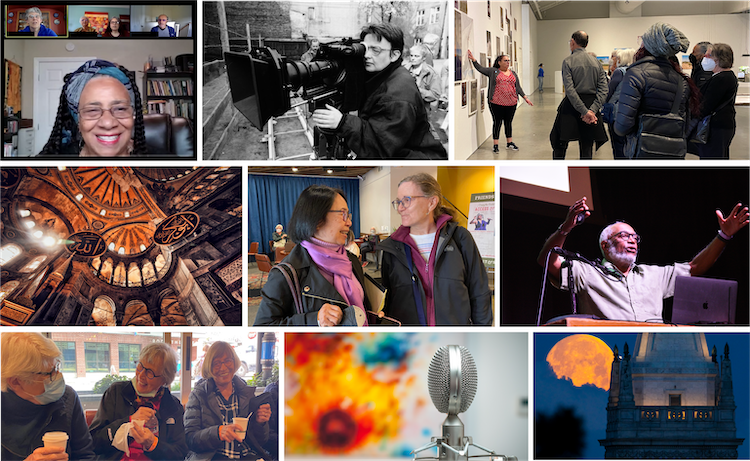
As we enter 2023, I can’t help but reflect on the past and future of lifelong learning. Perhaps you are, as well.
At the first Town Hall meeting we held in May, 2020, after our spring term pivoted from in person to entirely on Zoom, a longtime OLLI member offered how she missed her friends, the live classroom with the lively instructors and the lunchtimes or coffees that often followed. After I heard her comment, the metaphor that came to mind was that taking an OLLI course was like being inside your own three act play.
In the first act, you are anticipating the faculty and the class content, you're getting ready, getting dressed and arriving at the classroom.
For the second act, the faculty delivers the class itself, offering a needed intermission, then resumes for a second hour of engagement. It's the main event.
The third act follows you from the classroom, to the street, to a place to join friends and talk, and then back home. Perhaps, like after a play, you are quizzing yourself: "What did I learn? How do I feel? What do I want to share?"
Attention, focus and enjoyment—all wrapped together for a memory of learning. All knitted together by the social interactions you encounter.
Now with the option of learning on Zoom, how are we, the OLLI community, doing? Can any similar online experience reproduce those three acts of anticipation, enjoyment and reflection?
Many livestreamed classes enjoy an intimacy, as if you are in the living room with a charismatic instructor and they are talking directly to you. They even answer your questions without you having to raise a hand or speak. Soon, the technology will allow you to "think" your question without any typing required.
You might pick up a hint of critique here: Am I against technology or cynical about learning through a mediated zoom environment?
You would only be partially right. I value how much zoom has brought us into your home and engaged you in the world of ideas with great teachers and teaching. In a remarkably quick time, 92% of you bridged the digital gap that lurked in all of those earlier conversations about "How does this technology work?"
I am also all too aware how life events after 65, many not of our choosing, can limit our options, perhaps making it harder to attend classes in person.
Now, you are faced with a different kind of challenge. Can you recollect the value that real-time learning in an in-person classroom brought to you? Do you miss it? Can online learning provide the same experience for you?
The trend in education will continue to be towards more and more online learning. It's convenient for everyone and for every organization or institution.
OLLI is midway through its strategic planning process which is a dynamic interplay between and among staff and members, leaders from our committees, select faculty, and university colleagues.
If you were investing in your own lifelong learning, where would you put your time and money, next year, in the next five years? What people, places, and ideas animate your interest? If you had to choose learning platforms, or even prioritize them, what order would you give them: recorded, online, in person?
Many other OLLIs offer either/or: there are live, in-person courses and there are Zoom courses. They don't have the staffing resources to offer both at the same time, in what OLLI @Berkeley calls hybrid learning.
In our spring 2022 Annual Membership Survey, 60% of the OLLI membership wanted to restore in-person courses, though less than 20% attend the in-person option for courses when they are offered as a hybrid. 65–75% of members attend when a course only meets in person. Most members wanted a continuance of hybrid learning, a vote for more choice.
We've personalized our course offerings for your convenience or preferred learning style: you can watch a Zoom class, or watch a recording of that Zoom class whenever and wherever you like, or attend the class in person. However, what happens when members attend classes at different times? And is your learning community weaker or stronger when everyone has this choice? And does this flexibility favor accessibility over everything else?
Please send me your thoughts.
Thank you for taking the time to read and consider these ideas.
I look forward to hearing — and learning — from you.
Warmly,
Susan Hoffman
Director, OLLI @Berkeley